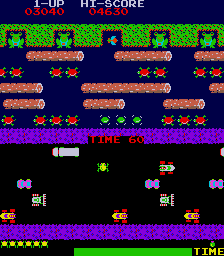When I was a kid and my parents took me to the grocery store, I begged (ahem, solicited…) them for quarters for the arcade next door where I would kill an hour playing the games of the day: Pac-Man, Defender, Missile Defense, Asteroids, Galaga, Q-Bert, and of course, Frogger.
What made Frogger especially intense was that it was the only game where you ha…
Keep reading with a 7-day free trial
Subscribe to The Philanthropy Network Newsletter to keep reading this post and get 7 days of free access to the full post archives.




